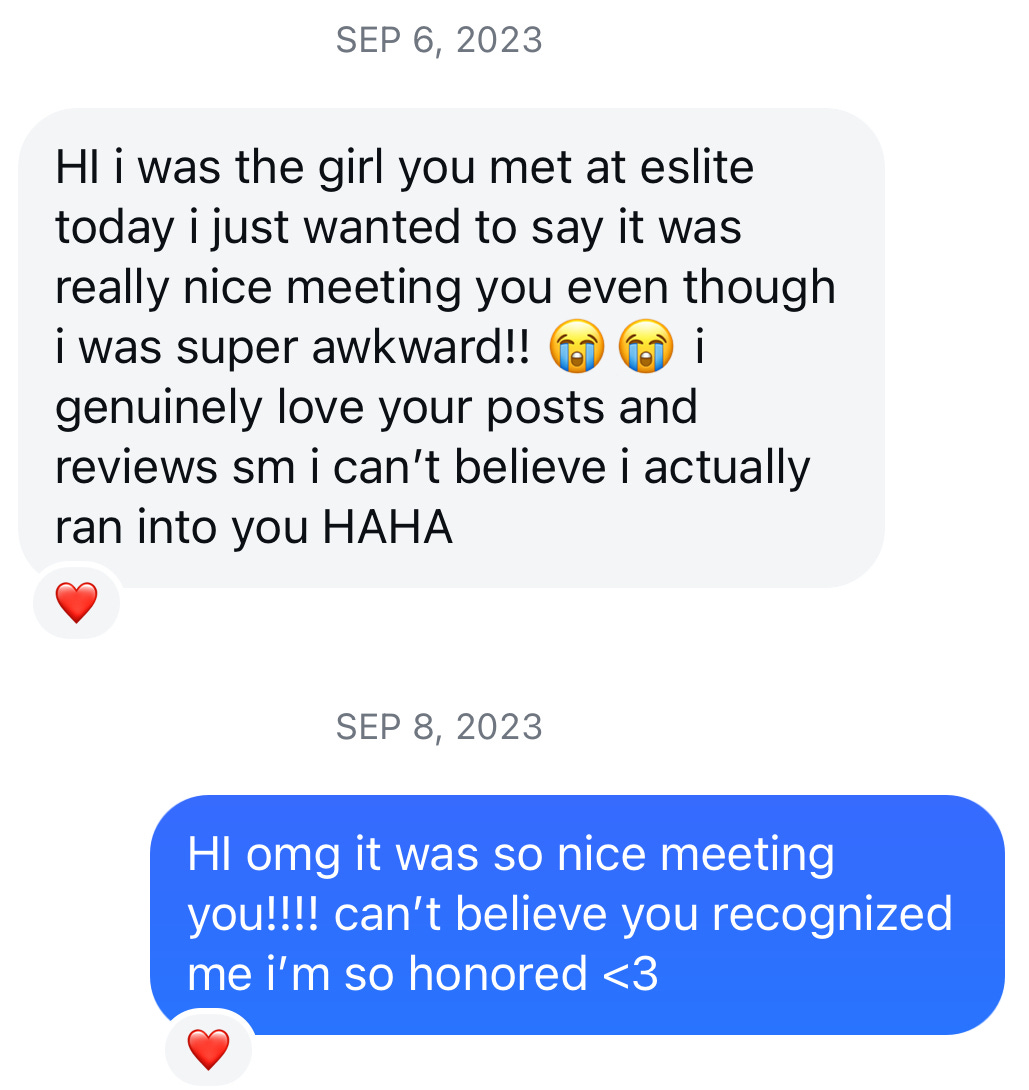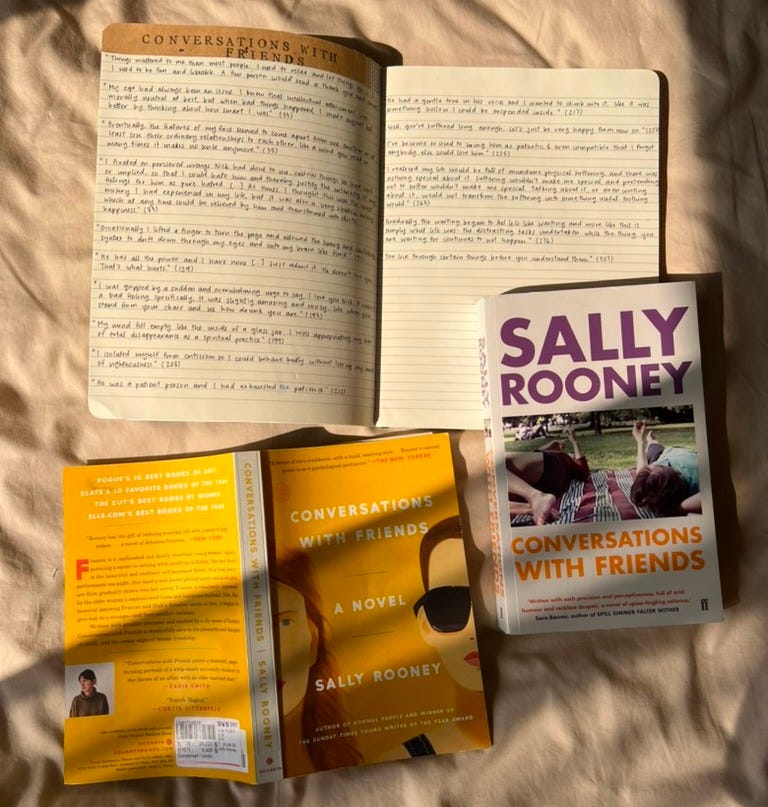i told no one, i had no one to tell
conversations with friends by sally rooney: on feelings, passive depression, and power dynamics in relationships (& excerpts from my journal)
Frances, are you planning to drown down there?
If you have been following me for a while, you know that one of my favorite books of all time is Conversations with Friends by Sally Rooney. I have read it so many times that every time I log it on Goodreads, it prompts a stranger to send me a wellness check message. I have read this six times in five years, and my close friends (Leah, Emma, Niña, Natalia) and I somehow end up talking about this book every week. Last year, someone actually recognized me at a bookstore near my house because I was holding a copy of the book in my hand and she asked, “Are you ellereadsomebooks on Instagram?”
It is so difficult to review and analyze a book that I hold so close to my heart. When I was younger, I had a phase where I was obsessed with finding these words in other languages with no direct English translation. I would read the meaning and wonder: why aren’t there actual English words for these meanings? Because I knew exactly what the feeling was or what the meaning was but could not describe it in one word. This is how Conversations with Friends makes me feel. All Sally Rooney books do, but this one in particular.
Frances and Bobbi are best friends and exes. They meet Melissa and Nick, an older married couple. The book, while not a romance, is about the four of them and the relationships between them. At first glance, the premise is simple to a fault. But a closer examination shows the depth and nuances you wouldn’t be able to see with a skim. If you look past its superficial dermal layers, you’ll see the book for what it is: a painfully realistic portrayal of human nature and the flaws it entails. Rooney does this with meticulous detail that we would otherwise dismiss as pedestrian or ordinary but manages to make it feel remarkable.
In this book, Sally Rooney does what she does best: break down human relationships and interactions in a way where, when you’re done reading, you see things in a slightly different paradigm than you did when you first started. Her tone is often deceiving—she writes in a clinical, almost factual way in which she gives the trust to the readers to be able to glean what is truly being said between the lines. A common criticism of Rooney is that she ‘tells’ and doesn’t ‘show’. But more often than not, what one thinks is being told is actually not what it means, as every line has a meaning of its own that requires the reader to read between the lines.
I think that is what I love about Rooney’s works and why her writing style, although attempted, cannot be replicated: while her writing is simple and often bereft of flowy prose language, she puts so much trust in the reader to be able to understand the true meaning of her sentences. Conversations with Friends is a masterpiece in depicting passive depression, or even high-functioning depression. The fact that Rooney does not use quotation marks also makes for a fascinating dichotomy because there are no traditional distinguishers between what stays inside her head as introspection and what she says out loud. These are all examples of her passivity and reluctance to truly acknowledge her feelings and problems.
Frances is seemingly nonchalant and passive to what is going on in her life, which creates an interesting juxtaposition with the first-person narrative it is written in. She lets people hold her hand. She lets Bobbi decide what kind of person she is (“Bobbi told me she thought I didn’t have a ‘real personality,’ but she said she meant it as a compliment. Mostly I agreed with her assessment. At any time I felt I could do or say anything at all, and only afterward think: oh, so that’s the kind of person I am”). We are in her head, but because Frances is so inactive in her own life and decision making, we are too. It feels like an out of body experience in the third person, simultaneously waiting for the car to crash while driving it.
[free preview ends here—this review gets a bit personal, so i’ve paywalled it + the analytical sections! thank you for supporting me and my newsletter.]






